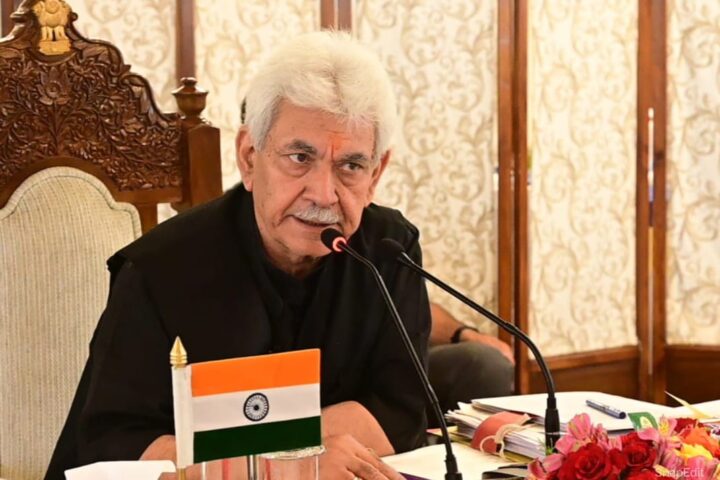By: Imran Maqbool Wani & Irfan Hussain Mir
The social media world is constantly moving, affecting how we relate to one another. Yet, with these privileges come some issues. Here is an example: trolling. One thing that is constantly seen on the internet today everywhere is an issue. Trolling is defined as posting deliberately inciting the emotions of readers/viewers by using incendiary content that comes in the form of text or video. While often referred to as harmless fun or juvenile humor, trolling is often taken lightly but that is not the whole story: it has far-reaching implications that go beyond mere entertainment. The psychological suffering that accompanies sexual exploitation will leave many of the victims with deep emotional scars, which may only begin to heal years later.
The bitter fruit of online trolling can be traced to the infancy period of the internet when social media platforms and the current internet speed were not as familiar as they are. The most recent study completed by the Pew Research Center indicates that 41% of American adults have experienced online harassment, and a considerable share of incidents stems from trolling behavior. These statistics, however, reinforce the sad reality that close to half of internet users have been harassed or abused online in one way or the other.
Being completely anonymous, the anonymity of the internet is considered among the primary reasons for the growing menace of online trolling. Trolls may use different names and fake profiles to conceal their identity. This leaves the victim unable to know the offender. This anonymity in turn furthers users’ adventurousness in saying and doing things online that would never cross their minds during face-to-face conversations. The disconnection between actions and consequences gives rise to an environment where people can indulge in malicious acts with impunity.
In addition, the algorithm of the media social platforms usually makes the issue worse. Developing algorithms for maximizing user interaction these algorithms always prioritize sensational and emotionally charged posts such as trolling posts. Consequently, trolls get more unfettered attention and feedback, which contributes to this type of behavior. Over time, this cycle of reward and repetition may lead trolling to appear like a good way of going around getting attention and influence in the digital space.
The effects of online bullying on individuals can be highly intense, widespread, and long-term. Victims of psychological abuse often report very negative emotional and mental health effects, like anxiety, sadness, and a feeling of worthlessness. In the worst cases, online harassment has not only caused self-injury but also led to extreme consequences such as suicide. The negative effects extend beyond personal life; professional integrity and paths to success are also under attack through deliberate online smear campaigns.
The devastating effect of online bullying is well depicted in the UK’s TV presenter, Caroline Flack’s case who was the subject of online trolling. One of the most prominent cases was that of Caroline Flack’s suicide in February 2020 after she encountered extreme media scrutiny and continuous online harassment. Her death did not only ignite conversations about the distressing effects of online harassment, but it also brought attention to the need for more support services, especially for those who have been victimized by this vice.
A second highlighted point relates to the cyberbullying experienced by women journalists and public figures. It has been found out gender wise trolls particularly suit women and women who are in positions of influence more. The bullying is mostly in the manner of sexual quotations, words of violence threats, and so forth of intimidation. The consequences are not only limited to the process participants but also develop the coldness towards free speech, women’s rights, and equality in public discourses.
Despite attempts made on different fronts to curb online trolling, it is an intricate and diverse problem, raising numerous challenges. Social media companies have put in measures such as reporting and blocking tools and the use of intelligent systems to detect and remove hate material during the publication process. Nevertheless, the initiatives though proactive, are short-lived. Thus, complaining about the efforts made is the most likely comment that the users will make.
The anonymity provided by the digital area gives users the privilege they cannot get in the real world without being identifiable, thus, becoming an excellent forum for trolls. A serial commenter can escape with their hate, whatsoever, due to an anonymous online presence by being provided an alias name and an image. Consequently, it is not unusual for such people to feel that they cannot hurt or use one another physically while they are safe. Meanwhile, others enjoy the namelessness, they do things that other people would think are purely unethical.
With this, they do not care whether they hurt a person’s feelings or make them react out of nothing because, in the end, nothing matters to them. The same case applies. One who loves his or her privacy in let’s call it real life, now all of a sudden finds his real identity too attractive on the internet. This therefore makes such a person more careless about his or her privacy and the whole thing becomes a bit too painful.
Trolling and its impact on mental health come second to none. Research has shown that cyberbullying has negative consequences on the mental health of victims, as the outcome is higher stress, depression, and anxiety. Abusive remarks and jibes tear one’s persona down while creating a climate full of fear, thus making anyone insecure about who they are wherever they might be even if there is some form of respite within their own home through the internet on which there seems no way out. What makes trollers more dangerous is the fact that they are everywhere. They are on social platforms, they are also on news sites, and different forums such as blogs.
It may be that this issue is very common and takes a serious toll on individuals and communities, yet it is seen as an issue that is inconsequential to society. Trolling is significant not just because of its causes but also the effects that it has and thus it is important to understand those. Usually, the lies portray trolls as seekers of attention/validation, so they employ crude or provocative language that will trigger a response from others. In this social media age, where engagement is visually apparent by the numbers; it is possible for a few people not to provoke any response even negative ones.
Virtual anonymity gives one the liberty to do things without being responsible since the real identity is hidden from all the people involved. Under the liberation of social norms and accountability, these individuals exploited the situation and achieved that which could not have been accomplished when physically present.
Trolling might be the expression of deeply-rooted psychological problems like insecurity, low self-confidence, and resentment yet to be overcome. This way some trolls are expressing their insecurities with other people’s pain, attempting to ease their discomfort by harassing others or causing their pain.
Trolling readily comes out in the pack instinct, belonging and simply following the crowd behavior. Others might imitate the fashion tendency just for the sake of the connection with their friends or as a style of their friend-centric certain groups. For instance, trolling can be a way out of the black void of everyday life for others: it gives a chance to enjoy something fun and absorb other people’s life stories. The excitement of outrageous reactions and the adrenaline of anonymity can risk growing into a distinctive addiction and so people who are engaged in bullying get in the habit of trolling others.
The mocking in real life seems to be rather unsuccessful, but its impacts often go to much wider spheres than just the virtual world. The spread of “trolling” – often found online – has resulted in a “toxicity” and “rude” culture in which trust and the interweave of communities are destroyed. Moreover, evidence suggests that you are likely to be gravely affected by trolling if you are subjected to it, and you may suffer from negative psychological effects, which manifest as anxiety, depression, and stress.
Although Western philosophy does not prohibit trolling, Islamic principles draw a very clear line of criticism for trolling. The basis of this belief, nevertheless, is the respect of kindness and harmony that deprive humanity of all other vices such as cruelty and neglect even towards themselves. According to Prophet Muḥammad (PBUH) as ordered to the rise of the kindness and forbearance of one’s actions, to dominate the very speech to be good or to silence it, the call us to use his words as a torch to guide ourselves through the complex maze of the online debate and also we curtail the obligation to building a culture of compassion and affection.
Another option is the use of legal and regulatory approaches. Some countries have passed or are considering bills that can track down the key players as well as apply harsh sanctions on offenders. As an example, the Online Safety Bill in the UK seeks to clarify the tech companies’ roles as guardians against harmful content and for users’ safety on the Internet.
We are the community dwellers of the digital world, and as such this implies that we should be concerned not only about our mental state but also about the welfare of everyone who traverses the large web that connects us all. We have to do more than just not give any more life to the trolls by shunning inciting words and not responding to those who say bad things about others, we have to be their enemies. Although it might take only one audience member to have their phone down for an instant and make a positive culture out of it, they can use this as a barrier for discouraging bullying and establishing that people’s voices are accepted and heard.
In a nutshell, the phenomenon of trolling is detrimental and chaotic because it can travel from one website to another, putting the whole cyber world in a scary darkness. It starts with mild symptoms, and at the worst stage, they can cause immense harm which may even be fatal. The person, whose life is ruled by addiction, wastes no time on the way to pleasure and happiness, and as a result, hurts those dear to him: friends and relatives. Nevertheless, empathy, humility, and stubbornness of those who worship the Islamic values together with the principles and tenets of the Islamic spiritual trail can provide an open chance and a new age of civil demeanor and decency in the cyber world.
Team up efforts of the whole community for the single aim of constructing an online space in which only tolerance and civility are the reigning forces, not toxicity, and hate speech.

Kashmir Images is an English language daily newspaper published from Srinagar (J&K), India. The newspaper is one of the largest circulated English dailies of Kashmir and its hard copies reach every nook and corner of Kashmir Valley besides Jammu and Ladakh region.











